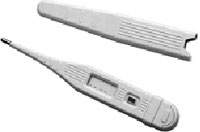Solutions...
Alternatives are available
Substitution of products containing mercury
Elemental mercury: Intentional usage of mercury has to be stopped as soon
as possible. There are economically viable non-mercury containing substitutes for almost
all current applications where mercury is used.
 |
| Who says we can't without mercury? |
Mercury compounds: The Minamata
disaster was caused by a mercury compound – mercuric chloride – which was
released with the effluent from a company producing fertilisers, petrochemicals and
plastics. In India, unusually high levels of mercury have been detected in groundwater not
only near chlor-alkali units (where elemental mercury is used) but also near industries
manufacturing or using dyes, paints, pigments, chemicals (such as H-acid, sulphonic acid
and vinyl sulphone), pesticides and herbicides, pharmaceuticals and plastics. It is
obvious that these industries still use mercury compounds even though most developed
countries have stopped using them.
The government should immediately ban or restrict,
through disincentives like high taxes and import duties, the usage of elemental mercury
and mercury compounds and provide incentives (lower or zero taxes or import duties) for
mercury alternatives.
| Alternatives
to mercury uses |
| Product or application |
Available alternatives |
Cost effectiveness |
| Mercury cell process in
chlor-alkali industry |
Membrane technology |
Mercury cell process in
Higher investment costs for conversion but lower operational, waste treatment and disposal
costs |
| Mercury used in dental amalgam |
Gold, silver, ceramic, porcelain, polymers, composites,
glass ionomers amalgam fillings |
While some are less expensive and easy to
apply, others are more expensive and difficult to apply |
| Mercury based batteries |
Virtually mercury-free batteries are
available |
Cost of mercury-free batteries may be
higher or about the same but their usage is preferable to costly cleaning of mercury
contaminated wastes |
| Laboratory use |
It is possible to restrict mercury use in school or
university laboratories to a few controllable uses |
The alternatives are generally no more expensive |
| Thermometers |
Other liquids, gas, electric and
electronic sensors |
More expensive but one electronic
thermometer may replace several broken mercury ones |
| Pressure measuring and control equipment |
In pressure gauges, switches and transmitters, mercury
can be substituted using flexible membrane,piezoelectric crystals and fibre-optic pressure
sensorsIn barometers and manometers, mercury can be replaced by other liquids or gases |
Electrical and electronic instruments are slightly more
expensive but alternatives based on gas, other liquids or mechanical spring showno
significant price difference |
| Tilt switch |
Mechanical or micro switch |
|
| Electronic switch |
Solid state and optical switch |
No significant price differences |
| Reed switch |
Solid state and electro-optical
switch, semi-conductor |
|
| Proximity sensor/switch |
Inductive, capacitive, photo-electric
sensor, ultrasonic |
|
Artisanal gold extraction
Pesticides and biocides |
Non-mercury electrolytic process, Minataur
processProcesses not requiring chemical chemical pesticidesand biocides or use easily
degradable substances |
Not more expensive Cost is roughly comparable and
environmental benefits are considerable |
| Energy-efficient lamps |
Currently there are no mercury-free
efficient alternatives to the energy-efficient lamps |
|
| Source: Global Mercury Assessment,
UNEP Chemicals, December 5, 2002 |
| Replacing
mercury-containing chemicals |
Chemicals containing
mercury |
Alternatives |
| Mercury (II) Oxide |
Copper catalyst, Sodium Iodate |
| Mercury Chloride |
None identified |
| Mercury (II) Chloride |
Magnesium Chloride/Sulfuric Acid or Zinc Formalin,
Freeze drying |
| Mercury (II) Sulfate |
Silver Nitrate / Potassium Sulfate / Chromium-(III)
Sulfate |
| Mercury Nitrate (for corrosion of copper alloys) for
antifungal use (mercurochrome) |
Ammonia/Copper Sulfate
Neosporin, Mycin |
| Mercury Iodide |
Phenate method |
| Sulfuric Acid (commercial grade; mercury as impurity) |
Sulfuric acid from a cleaner source |
| Zenker’s solution |
Zinc Formalin |
| Source: Draft Wisconsin
Mercury Sourcebook, Wisconsin Department of Natural Resources (USEPA grant), May 1997 |
|
|

